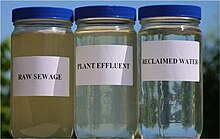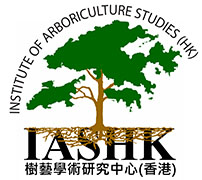wastewater that has been recovered and/or treated for potable or non-portable use.
Water reclamation is the process of converting municipal wastewater or sewage and industrial wastewater into water that can be reused for a variety of purposes . It is also called wastewater reuse, water reuse or water recycling. There are many types of reuse. It is possible to reuse water in this way in cities or for irrigation in agriculture. Other types of reuse are environmental reuse, industrial reuse, and reuse for drinking water, whether planned or not. Reuse may include irrigation of gardens and agricultural fields or replenishing surface water and groundwater. This latter is also known as groundwater recharge. Reused water also serve various needs in residences such as toilet flushing, businesses, and industry. It is possible to treat wastewater to reach drinking water standards. Injecting reclaimed water into the water supply distribution system is known as direct potable reuse. Drinking reclaimed water is not typical. Reusing treated municipal wastewater for irrigation is a long-established practice. This is especially so in arid countries. Reusing wastewater as part of sustainable water management allows water to remain an alternative water source for human activities. This can reduce scarcity. It also eases pressures on groundwater and other natural water bodies.

There are several technologies used to treat wastewater for reuse. A combination of these technologies can meet strict treatment standards and make sure that the processed water is hygienically safe, meaning free from pathogens. The following are some of the typical technologies: Ozonation, ultrafiltration, aerobic treatment (membrane bioreactor), forward osmosis, reverse osmosis, and advanced oxidation, or activated carbon. Some water-demanding activities do not require high grade water. In this case, wastewater can be reused with little or no treatment.
The cost of reclaimed water exceeds that of potable water in many regions of the world, where fresh water is plentiful. The costs of water reclamation options might be compared to the costs of alternative options which also achieve similar effects of freshwater savings, namely greywater reuse systems, rainwater harvesting and stormwater recovery, or seawater desalination.
Water recycling and reuse is of increasing importance, not only in arid regions but also in cities and contaminated environments. Municipal wastewater reuse is particularly high in the Middle East and North Africa region, in countries such as the UAE, Qatar, Kuwait and Israel.
